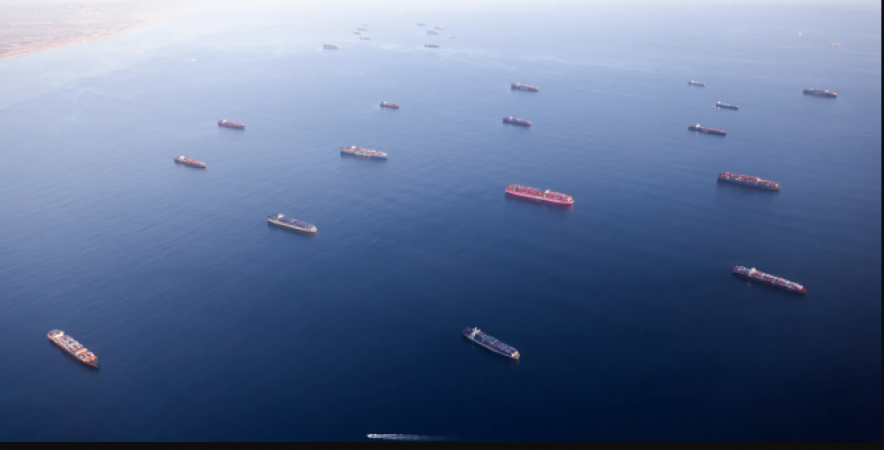
USA: The global shipping industry is currently facing significant challenges related to decarbonization efforts. These measures, aimed at reducing emissions and combatting climate change, have the potential to increase the cost of exports and imports.
The International Maritime Organization (IMO), a United Nations body responsible for regulating the shipping industry, has set a target to reduce the sector's carbon emissions by 50% by 2050 compared to 2008 levels.
To achieve this target, the IMO is considering various measures, including a carbon tax on shipping emissions and a requirement for ships to use cleaner fuels.
Also Read: Humza Yousaf's Honeymoon Period Over as Poll Shows He's Losing Support
One of the proposed measures is the implementation of a carbon tax, which would be imposed on the amount of carbon dioxide emitted by ships. Shipowners would be responsible for paying the tax, which would then be passed on to shippers and eventually to consumers.
Additionally, the IMO is contemplating a mandate for ships to utilize cleaner fuels such as liquefied natural gas (LNG), methanol, and ammonia, all of which emit fewer greenhouse gases compared to traditional bunker fuel.
However, these cleaner fuels are more expensive than bunker fuel, which would lead to an increase in shipping costs.
The cost implications of these decarbonization measures are expected to be passed on to consumers, potentially resulting in higher prices for goods and services.
Also Read: On a website run by the UK foreign office, a decade-old article contained a racist slur
This could have a significant impact on the global economy, although the exact extent of this impact is still a subject of debate. While some experts anticipate substantial cost increases, others believe that the shipping industry will find ways to reduce emissions without significantly raising costs.
The future of the shipping industry remains uncertain due to these challenges, along with the emergence of new technologies such as autonomous shipping.
The industry must adapt to these circumstances, and while the path forward may be unclear, it presents both challenges and opportunities. As an integral part of the global economy, the shipping industry plays a vital role in international trade and the transportation of goods.
The decarbonization process poses challenges, but it also provides an opportunity for the industry to enhance efficiency and sustainability.
To mitigate the costs associated with decarbonization in the shipping industry, several strategies can be implemented. First and foremost, investing in research and development is crucial to develop new technologies that can effectively reduce emissions without significantly increasing costs.
Collaboration with governments is also essential to establish supportive policies that facilitate industry-wide decarbonization efforts. Furthermore, the shipping industry should actively engage and collaborate with other sectors, such as the energy industry, to explore innovative solutions for decarbonization.
Also Read: PM Modi to embark on 2-nation Visit of France, UAE tomorrow
In summary, decarbonization poses a complex challenge for the shipping industry, but it is imperative that the industry addresses it. By investing in research and development, working closely with governments, and fostering collaboration with other sectors, the cost of decarbonization can be minimized.
While the journey towards decarbonization may be challenging, it also presents an opportunity for the shipping industry to transition into a more sustainable and efficient future.